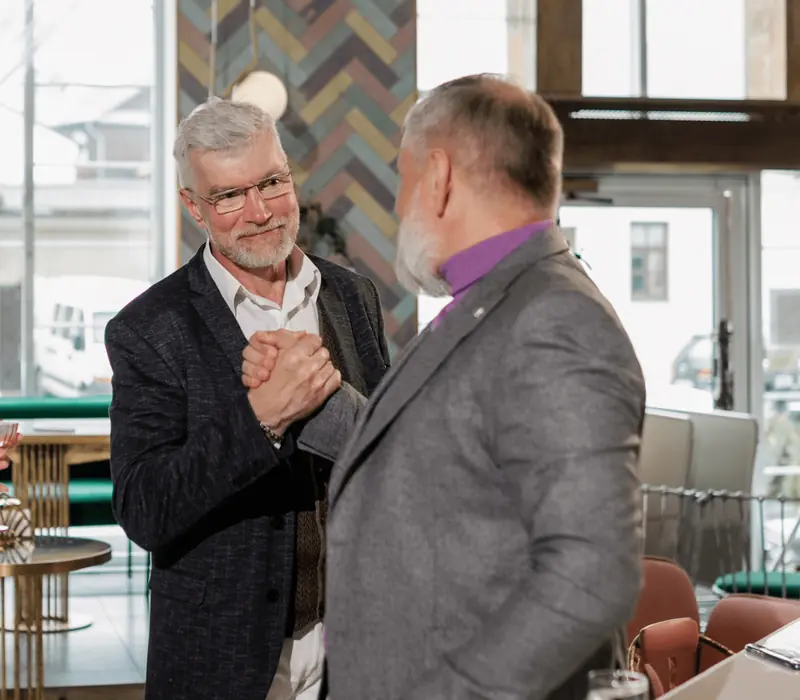
It’s no secret that regular exercise, weight management, and healthy eating are key steps toward robust health. However, researchers have now uncovered another, less obvious factor that can have an extraordinarily significant impact: charity. There is already a growing body of evidence suggesting that charitable acts can strengthen a person’s immune system.
Simple acts of altruism, such as donating money, volunteering, or even just showing kindness, can greatly benefit one’s health. Any form of charity potentially helps individuals live longer and boosts their immune systems.
Charity Reduces the Risk of Chronic Pain
British researchers sought to determine whether helping others—known as prosocial behavior—could also lower the risk of chronic pain. Studies indicate that up to 85% of those suffering from chronic pain not only endure physical suffering but also fall into depression as a result. This often leads to a decreased motivation to engage in self-help measures that could alleviate pain, such as regular exercise.
The British scientists analyzed data from 48,000 individuals who participated in a long-term health study from 2011 to 2020. Among the information collected were details about the participants’ prosocial behavior and their levels of chronic pain.
 Participants were asked if they had donated money to charity in the past year, and if so, how much. Just over a third of respondents reported that they had contributed to charitable causes. Nearly one in five participants had engaged in volunteer work during the same period.
Participants were asked if they had donated money to charity in the past year, and if so, how much. Just over a third of respondents reported that they had contributed to charitable causes. Nearly one in five participants had engaged in volunteer work during the same period.
The researchers compared these details with the number of participants who reported that chronic pain had significantly disrupted their lives over the nine-year study period. The results indicated that those who donated money to charity had a lower risk of experiencing chronic pain.
Moreover, engaging in certain volunteer activities had an even greater impact. The most significant benefits were observed among those who did both—donated money and volunteered.
Why Does This Happen?
According to the researchers, volunteering typically involves some physical activity, which stimulates the release of endorphins— the body’s natural painkillers and mood enhancers. However, even a simple donation can have a similar effect.
As the researchers note, prosocial behavior also contributes to better mental health. And as we know, physical pain and mental health are closely interconnected.
Psychologist Audrey Tang explains that endorphins are produced when a person achieves something they set out to do. These endorphins tend to linger in the body, which can help alleviate chronic pain. However, studies show that the benefits of kindness extend beyond just pain relief.
More Good Deeds, Better Health
A 2013 study conducted by American psychologists found that people over the age of 55 who offer help to others for free have at least a 24% lower chance of dying prematurely compared to those who do not. Thus, charity and good deeds can be crucial for those trying to maintain their physical and mental health after retirement. According to Ms. Tang, in addition to social interaction, people also exercise and maintain joint mobility and flexibility through these acts.
 As reported by the Daily Mail, other studies indicate that good deeds can reduce the risk of cardiovascular diseases. This primarily occurs due to a decrease in stress hormones like cortisol, which contributes to high blood pressure—a major risk factor for heart attacks and strokes.
As reported by the Daily Mail, other studies indicate that good deeds can reduce the risk of cardiovascular diseases. This primarily occurs due to a decrease in stress hormones like cortisol, which contributes to high blood pressure—a major risk factor for heart attacks and strokes.
Altruism or Even Observing It Boosts Immunity
Even witnessing someone else’s altruism can enhance the ability to fight infections. In a landmark study conducted in 1988, researchers invited a group of volunteers to watch a video about the charitable acts of Mother Teresa in India. Another group was shown a film about Hitler.
The researchers took blood samples before and after the viewing. They measured levels of immunoglobulin A—a substance released by the immune system as a defense against bacteria, toxins, or viruses. The results showed that viewers of the video about Mother Teresa’s altruistic behavior experienced a sudden spike in immunoglobulin A levels. In contrast, those who watched the film about the dictator showed no change in their immunoglobulin A levels.
This experiment demonstrates that even observing good deeds performed by others can impact the health of the observer. This phenomenon has come to be known as the “Mother Teresa Effect.” However, as Dr. Tang points out, one can gain even more benefits from performing an altruistic act themselves rather than merely being a bystander.

